Francisco de Quevedo and Seneca: Neo-stoicism from Baroque Spain and Stoicism in the Silver Age of Rome

Francisco de Quevedo y Villegas (1580-1645)
Via his contacts with the Flemish scholar Justus Lypsius, a young Quevedo came in contact with Neo-Stoicism, a strain of thought which responded to the growing European crisis at the turn of the 17th century drawing from the works of Seneca and other Classical Authors with a Stoic bent such as Marcus Aurelius. (However such a turn toward Seneca had also been anticipated by Fray Antonio de Guevara early in the 16th century) This Neo-Stoic influence is revealed throughout Quevedo's voluminous poetry and prose works. A case in point is the following passage from El mundo por de dentro- (The world inside out) which was part of a series of satirical visions which starts out with the Vision of the Final Judgment (El sueño del juicio final), El alguacil endemoniado (The possessed sheriff), A Vision of Hell (el sueño del infierno), The World Inside Out (El mundo por de dentro), and The Vision of Death (El sueño de la muerte). In this portion the hypocrisy of the world are revealed as the author-narrator passes through a trip wire to uncover society's hidden vices. His guide, a world-weary old man speaks to him:
By chance do you know what an hour is worth? Have you examined the value of time? It’s obvious that you haven’t, because you happily let it be stolen away by the fleeting hour which robs you of something most precious. Who told you that what has already gone will come back to you if you call for it when you need it? Tell me, have you seen any day’s trampling? Certainly not, for they only turn their heads to laugh and ridicule those who thus let them pass. Know that they and death are connected in a chain and the more the days pass on that lie ahead of you the more they push and pull you towards death. Maybe you’re expecting it and it has already arrived and by the way you live it’ll happen before you know it. I think anyone who is deathly afraid all his life that he is going to die is a fool and evil anyone who lives with such little fear of death as though it will never affect him. Because he will come to fear death when he suffers it and then overcome with fear he will find neither solution to life nor consolation at his end. Sane is only he who lives every day as if he could die at any hour on any day. (From El mundo por de dentro)
¿Tú por ventura sabes lo que vale un día? ¿Entiendes de cuánto precio es una hora? ¿Has examinado el valor del tiempo? Cierto es que no, pues así, alegre, le dejas pasar hurtado de la hora que fugitiva y secreta te lleva preciosísimo robo. ¿Quién te ha dicho que lo que ya fue volverá cuando lo hayas menester si le llamares? Dime, ¿has visto algunas pisadas de los días? No por cierto, que ellos solo vuelven la cabeza a reírse y burlarse de los que así los dejaron pasar. Sábete que la muerte y ellos están eslabonados y en una cadena, y que cuando más caminan los días que van delante de ti, tiran hacia ti y te acercan a la muerte, que quizá la aguardas y es ya llegada, y según vives, antes será pasada que creída. Por necio tengo al que toda la vida se muere de miedo que se ha de morir y por malo al que vive tan sin miedo de ella como si no la hubiese, que este lo viene a temer cuando lo padece, y embarazado con el temor, ni halla remedio a la vida ni consuelo a su fin. Cuerdo es solo el que vive cada día como quien cada día y cada hora puede morir.
Lucius Annaeus Seneca (4-65 A.D.)
Seneca the Younger came from the Roman province Hispania and the southern region Baetica from the city of Corduba, which corresponds to modern day Corboba. His father Seneca the Elder was a renowned Rhetorician and the future philosopher came to Rome at an early age to pursue his studies. There he had Greek teachers who schooled him in Stoic philosophy. Most notably Seneca later went on to be the tutor of the young Nero and actually had a benevolent influence over him for a time. However, as Nero was clearly insane this did not last. In the end he was forced to commit suicide as part of a supposed plot along with his nephew the poet Lucan Among his works are treatises such as De Clementia- On Mercy, Dialogues, and Plays. Also influential are his letters to his pupil Lucilius in which topics such as fate, happiness, and mortality are discussed.
Who will you give me, who can put some price on time, who can judge the value of a day, who knows himself to be dying, daily? For in this we are all deceived: we look forward to death, but the great portion of death has already passed. Whatever part of our life is behind us, death possesses. Therefore: do, my Lucilius, what you wrote to me that you do: embrace each hour.
Quem mihi dabis, qui aliquod pretium tempori ponat, qui diem aestimet, qui intellegat se cotidie mori? In hoc enim fallimur, quod mortem prospicimus: magna pars eius iam praeteriit; quidquid aetatis retro est mors tenet. Fac ergo, mi Lucili, quod facere te scribis, omnes horas conplectere.
(Source: Seneca, Epistulae Morales I.2)


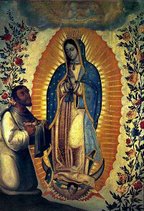
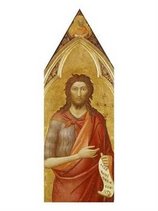


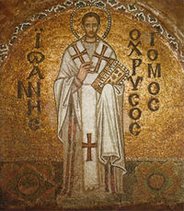
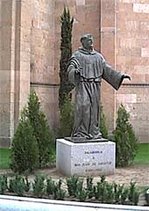

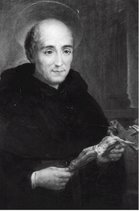
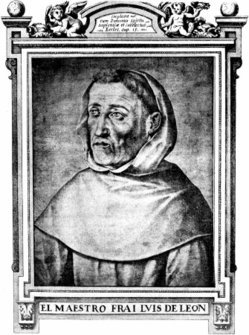




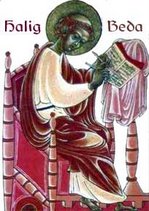
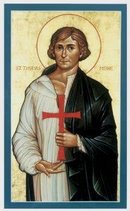
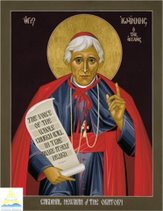




No comments:
Post a Comment